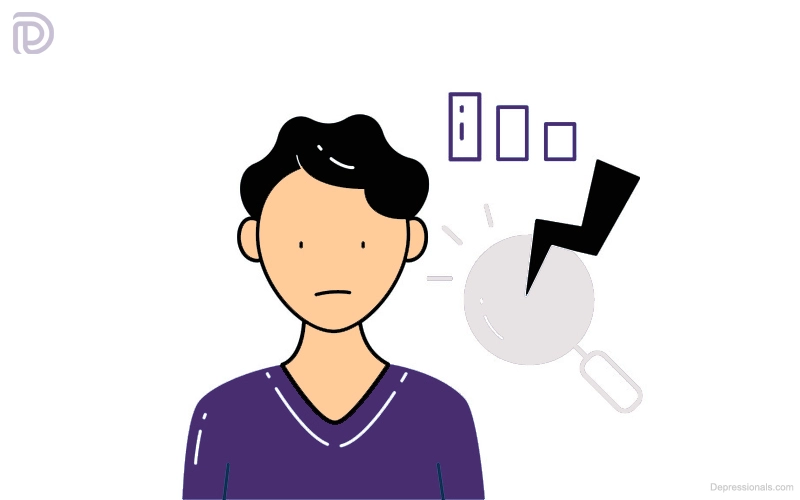You must know how to stop overthinking If you’re over-thinker. You keep ruminating about a problem – i.e., a health concern, a work dilemma – and just can’t seem to stop trying to figure out its meaning. Unfortunately, we go round and round in our thinking without ever finding a solution.
Metacognitive clinical psychologists work daily with individuals who spend most of their waking hours scrutinizing their minds for solutions in search of answers or meaning as they try to figure out what to do. It is ironic that they come to a standstill in their efforts to figure out how to go forward in life.
We are often more at a loss than we were to begin with when we spend too much time analyzing our problems and dilemmas. Further, overthinking can often lead to symptoms of insomnia, difficulty concentrating, depletion of energy, which, in turn, may make a person worry more about their symptoms, creating a downward spiral. It may eventually lead to depression or chronic anxiety.
It’s normal to seek ways to calm down when overthinking and the associated symptoms spiral. Research shows that common strategies can occasionally lead to more harm than good, leading to overthinking and inadvertently creating negative consequences.
Read: Thought Disorder
Learn 14 Easy Tips to Stop Overthinking
1. Be aware of your thoughts
Overthinking can be difficult to recognize because it becomes a habit before you even notice it. It is recommended that you observe your thoughts and identify any triggers that recur. Then, work on it to stop overthinking
If you like to keep track of your thoughts, you might want to write them down somewhere. You can use a journal or you can use your phone and Foundations’ thought record feature to enter your thoughts on-the-go.
Remember what you feel even if you are replaying past mistakes. It’s also a good idea to understand what repetitive thoughts are and recognize if they’re helpful or not.
2. Identify what you can control
It’s not going to solve anything if you get absorbed by your problems. Try to focus on what you can do to prevent or resolve the problem if you have any control over any part of what is happening.
Take into account coping strategies if you are powerless over what’s happening.
Try taking a short walk, using a few minutes to meditate, or focusing on what’s at hand if you’re feeling really stressed. If you feel calmer, consider how your attitude and efforts can affect the situation now and in the future.
Read: What is Analysis Paralysis
3. Question your thoughts
Never let your negative thoughts control you. Be aware that your emotions might be impairing your ability to see situations objectively, leading you to create mountains out of molehills.
Stop for a moment and consider the evidence. What evidence supports your belief? Whether it’s true or not, what will it mean in a month, a year, or ten years?
The “five whys” are another good strategy to use to stop overthinking, which comes from productivity science. Ask yourself why you feel or think a particular way. Give one answer. Lastly, you should ask yourself again and continue to ask until you can provide a fifth and perhaps more comprehensive explanation.
4. Reconsider your actions
The tendency to dwell on one’s problems for an extended period of time can be harmful, but reflection is sometimes beneficial. You should allow yourself ample time to think through your thoughts, and consider the reason why you are contemplating them.
If you are able to reflect on how they make you feel, you will be able to identify your pain points, resulting in less overthinking in the future.
The Anxiety Toolkit author suggests three questions to keep in mind from Cognitive Behavioral Therapy:
- How can I handle the worst case scenario?
- What is my best option?
- What is the most realistic option?
- Write it down
This cannot be stressed enough. If you can’t get your thoughts to go away, ordering them to do so won’t do much to stop them from coming back. Move your ideas from your head onto a digital or paper page to give yourself some mental space.
Journaling not only strengthens the mind, but it also strengthens the immune system, according to the American Psychological Association.
Read: How to Overcome Analysis Paralysis
5. Practice mindfulness
One of our favorite ways to stop overthinking is to live in the present moment. Mindfulness is so important to us that we designed Foundations around it.
If you are living in the here and now, you can’t think about tomorrow or yesterday.
Meditation has been recommended by Johns Hopkins Medicine and Harvard Health for reducing stress and overthinking. Mindfulness practice takes time and effort, but it can reduce overthinking with regular practice. Deep belly breathing can reduce your blood pressure and heart rate as well as help you be more present in the here and now.
6. Replace negativity with positive things
Does the impostor syndrome affect you? Impostor syndrome is a feeling of not being good enough, which causes you to feel unworthy:
- It makes me feel unworthy to speak
- I’m not cut out for management
- Making lots of money isn’t my right
Impostor syndrome leads people to believe they don’t deserve the success they have achieved, regardless of how successful they are on the outside. It is possible that they suffer from persistent beliefs that they are incompetent or inferior.
There is even an estimate that 70 percent of the population suffers from impostor syndrome. This exercise is great for combating impostor syndrome (I have a very severe case myself).
Remind yourself, “You’re awesome!”:
- “I’m an excellent speaker.”
- “I’m a great manager.”
- “I have a lot of wealth.”
When you think positively, you replace your negative thoughts. Students who were told to think of an object other than the white bear-for instance, a red convertible-performed somewhat better at focusing their minds than when told to think of the white bear.
Additionally, replace any negative thoughts you have with positive ones. Boosting your positive attitude can do the following, according to Mayo Clinic:
- Make you live longer
- Relieve stress
- Help you cope with depression
Therefore, if you are always seeing the negative side of things, keep telling yourself, “I’m great.” Do it every day. Make sure you post this note on your mirror. Create a desktop wallpaper of your favorite quote.
Read: How to Get Peace of Mind
7. “I will” thoughts
Next, take a moment to reflect on all your past achievements. Your friend might have thanked you for something kind or you got promoted at work. One of the major causes of overthinking is not living up to a past success.
8. Recognize when you are stuck in your head
You may not even be aware you’re overthinking until it becomes a habit. So you can become aware of the problem, you need to pay attention to your thinking.
You should acknowledge that you are not productive when you replay events in your mind repeatedly or fret about something you cannot control. Taking positive action only results from positive thinking.
9. Maintain a problem-solving focus
Problem-solving is more helpful than dwelling on them. If it’s something you can prevent, try to come up with five possible solutions. If it’s something you can’t, think of a way to prevent.
Think about the solutions you can use when faced with something you cannot control, like a natural disaster. Focus on your attitude and effort in dealing with something you cannot control.
10. Schedule reflection time
Spending a lot of time trying to figure out a problem isn’t productive, but short reflections can be helpful. It would be helpful to consider how you can improve your plan or where potential pitfalls may lie.
Try to schedule 20 minutes each day for “thinking time.” You can ruminate, worry, or mull over anything during this time.
Afterward, you can proceed to another activity. You can also remind yourself whenever you are overthinking things outside your scheduled time that you will need to address those issues once you return to your scheduled time.
Read: Types of Overthinking
11. Switch the channel
Forcing yourself not to think about something will force you to do so. Whenever you attempt to block out a thought, it will return.
Switch whether you are thinking or doing something else. Distract yourself by exercising, chatting about a completely different subject, or working on a task that you find distracting. You will stop overthinking if you do something different.
12. Train your brain
Developing better awareness of your bad mental habits can be achieved by paying attention to your thoughts. Your brain can be trained to think differently through regular practice. Your mental muscles will become stronger as you build healthier habits.
13. Think about other perspectives
It may be necessary to change your perspective from time to time to calm your mind. Experiences, values, and assumptions shaped your outlook on life. It helps to imagine things from a different angle when you’re dealing with noise.
Make a note of what goes through your mind. Evaluate how valid they are. It’s possible you’re stressed out about a trip that’s coming up because you just know it will be a disaster. Does it really have to be that way? How can you prove it?
Read: Side Effects of Overthinking
14. Face your fears
It’s impossible to control everything. It can be very helpful to learn to accept this. It isn’t going to happen overnight, and it’s not easy to say. Look for little avenues in which you can confront the situations that worry you most. Taking a solo day trip you’ve been thinking about may be just what you need to deal with that bossy co-worker.
The bottom line
Overthinking occurs when you find yourself thinking and worrying endlessly. Overthinking usually results in inaction because you are paralyzed by fear instead of preparing for the next step. Mental health conditions such as depression, anxiety, and overthinking can be identified early when a person is overthinking.
It might be a good idea to challenge your thoughts, reach out to loved ones for support, or locate mental healthcare professional for help to stop overthinking.






Hello.This article was really interesting, particularly because I was looking for thoughts on this subject last couple of days.